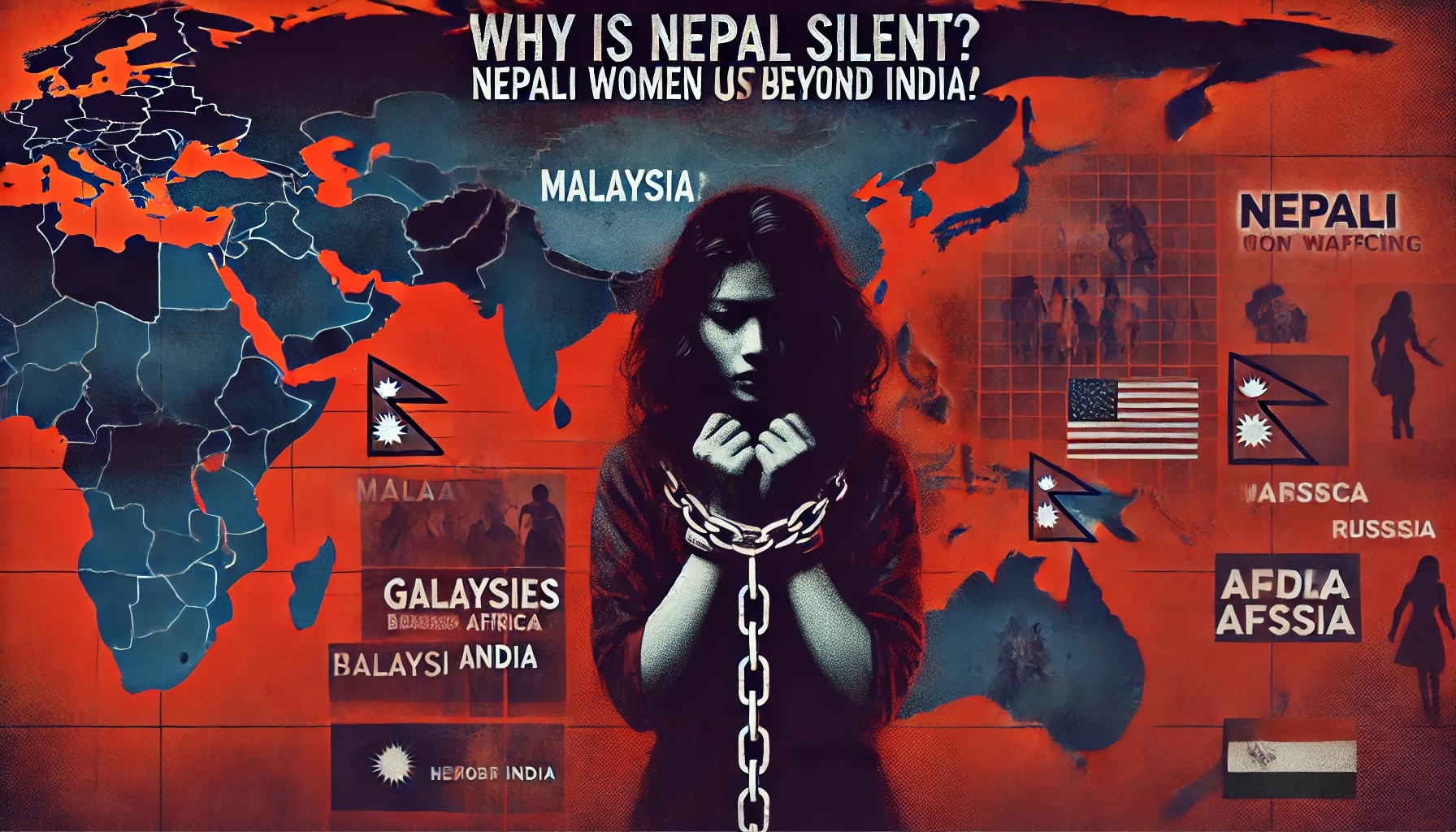Why is Nepal Silent? Nepali Women Unsafe Beyond India!

Kathmandu – For years, Nepali women working as domestic helpers in Gulf countries have been subjected to inhumane conditions, yet this issue has never become a priority for the government, parliament, student organizations, human rights activists, or civil society. The problem is not limited to the Gulf; Nepali women workers face similar dangers in Malaysia, African countries, and even Europe. But why does our political sphere remain silent when Nepalis suffer outside of India?
Continuous Exploitation of Nepali Women in the Gulf!
In 2016, Nepal’s parliamentary labor committee imposed a ban on sending Nepali domestic workers, especially women, to the Gulf countries due to increasing reports of sexual exploitation, physical abuse, wage theft, and inhumane treatment. However, after eight years, the government is once again preparing to send Nepali women as domestic workers to these same countries.
Labor Minister Sharat Singh Bhandari stated that the government is working on a "transparent protocol" to start sending workers to the UAE first. He claims that legal protections, fair recruitment, and employer accountability will be ensured. However, critics argue that this decision could once again put Nepali women at risk of exploitation.
Not Just the Gulf, Nepali Women Are at Risk in Other Countries Too
Beyond the Gulf, Nepali domestic workers in African countries, Russia, Turkey, Malaysia, and other nations face horrifying cases of sexual abuse, human trafficking, forced labor, and inhumane treatment. Many women are taken abroad on visit visas via India and then forced into slavery-like working conditions. Despite these serious issues, the government, parliament, human rights organizations, and civil society remain silent.
Recently, some women have managed to escape from Russia, Turkey, and African countries, returning to Nepal with harrowing stories of torture. Many Nepali embassies do not even keep proper records of such cases. Why hasn’t our government and representatives taken this issue seriously?
Why Do Nepali Leaders Speak Up Only When the Issue Involves India?
Nepali politicians frequently raise their voices when Nepali citizens face issues in India, but why do they remain silent when Nepalis suffer in the Gulf, Malaysia, Russia, or Africa? Is the safety of Nepali citizens only a matter of concern when it involves India?
Why do the Prime Minister, ministers, parliamentarians, student organizations, human rights activists, and civil society groups remain silent when Nepali workers face abuse in other countries? Nepali women are being held captive, sexually exploited, denied wages for months, and forced into miserable conditions, yet this has never become a political issue.
Does the Gulf Labor Agreement Ensure Safety or Legalize Human Trafficking?
The labor ministry is pushing forward with plans to send Nepali women domestic workers to the UAE, but experts warn that this decision is reckless. Labor expert Ganesh Gurung argues:
"Before sending Nepali women abroad for work, they must receive language training, legal knowledge, and self-defense skills. The Philippines has a strong monitoring system for their domestic workers, but Nepal has no such system, leaving its citizens vulnerable."
Due to the lack of proper oversight by Nepali embassies, employment contracts often remain unenforced. In many cases, women go missing, and only their dead bodies return to Nepal.
Civil Society and Youth Must Speak Up!
Nepali leaders passionately debate border issues with India and express concerns about trade imbalances, but why do they stay silent when Nepali citizens disappear, are raped, or even burned alive in the Gulf, Malaysia, Africa, or Russia?
This issue is a matter of life and death for many Nepalis. Nepali women are being enslaved, yet instead of creating safe employment opportunities, the government is pushing them back into danger. Nepali citizens, will you stay silent, or will you rise against this injustice?




![From Kathmandu to the World: How Excel Students Are Winning Big [Admission Open]](https://nepalaaja.com/img/70194/medium/excel-college-info-eng-nep-2342.jpg)
